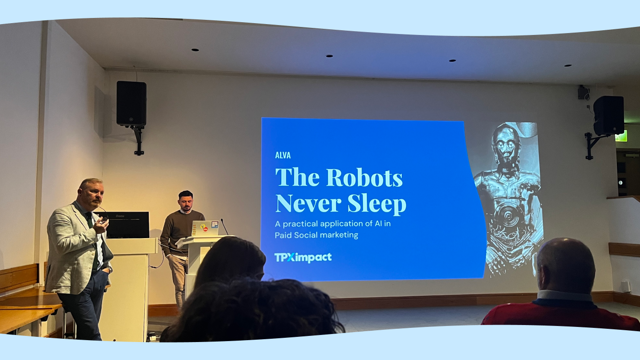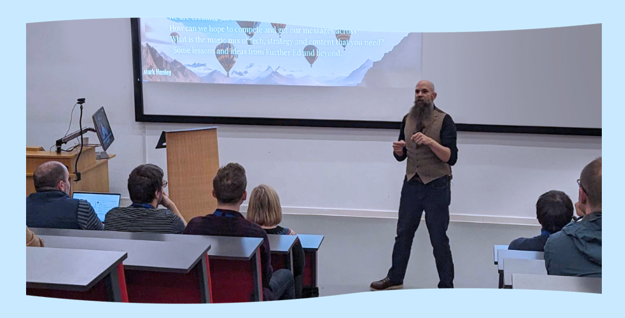328 million terabytes of information is added to the internet daily. How do you stand out and get heard in that context - particularly when you are a University trying to communicate with young people? This was the question I asked at the Scottish Web Folk event in Dundee in November 2023.
The attention economy is a battleground where, traditionally, content is king. In reality, content is the springboard to action. However, many organisations - including some Universities - end up focusing on the process of content creation and distribution rather than the quality and value of the content itself. The irony is profound: in our quest to streamline and centralise, we sometimes lose sight of the very essence of our efforts. Meanwhile, our audiences look elsewhere, and their expectations rise, making the engagement cycle increasingly difficult.
Redefining content quality and engagement in the digital age
There’s no avoiding the fact that a centralised content and distribution model makes good sense for organisations - it legitimately supports brand consistency, lowers technical effort and levels the playing field for content creation within the organisation.
However, the rise of social media has created a 'market square' where the brand is secondary to the perceived immediate value of the content, and the content must compete. Some recent user research with first-year University students showed that they preferred social media as a source of information about choosing a university, to the extent that 60-70% of their information came from social rather than the university website itself.
This shift requires reevaluating which channels you communicate in, how you define your conversion funnels, and accepting that at least some of your content needs to be short-form, video-based, self-deprecating and entertaining - all likely to concern your brand managers! To put it into perspective, if the average time on site metric for a University website is less than 5 minutes, compared with the data showing Tiktok users are averaging 1.5 hours per day, this highlights the urgent need for our digital strategies to evolve rapidly and appreciate the power of these social channels.
Navigating audience attention and digital strategy evolution
With a clearer understanding of the need for suitable content aligned with the right channels, the strategic approach becomes easier. Tech must be the partner and enabler, rather than the driver, and it’s vital that engagement and conversion are your metrics rather than the choice of CMS or CRM.
The ‘hearts and minds’ challenge of centralisation is to support brand, marketing and faculty or business units in being able to preserve quality and create the content they need to meet their objectives - while at the same time undertaking the engineering needed to modernise your digital estates. It’s not a simple task, and it requires a holistic view of the problem, with suitable leadership, governance and strategy, rather than a tech or system-first view.
Technology as an enabler
The attention economy is not just about capturing attention; it's about making meaningful connections. As digital strategists and content creators, our goal should be to not only inform but also to inspire and engage. This requires a deep understanding of our audience, a commitment to quality content, and the agility to adapt to the ever-evolving digital landscape.
My presentation at the Scottish Web Folk conference was an opportunity to share insights and lessons from my experience across various sectors, including higher education, government, and non-profit organisations. It is clear that in this age of information overload, our success hinges on our ability to compete for attention and earn it through compelling, relevant, and engaging content.
If we put people at the centre of our thinking, great content becomes the bridge for ideas - and isn’t that what Further Education is all about?

Make deeper emotional connections with interactivity
Claim a better space in the minds and hearts of customers, ensuring you're remembered, appreciated and loved in the time they spend with you.
Read moreOur recent insights
Transformation is for everyone. We love sharing our thoughts, approaches, learning and research all gained from the work we do.

A practical application of AI in paid social marketing
Integrating AI in marketing strategies represents a transformative shift in how positive-change institutions engage with their audiences.
Read more
Embracing the shadow: digital transformation and our planet's future
We're not just creating digital products but enriching lives with sustainable, fair experiences. Our focus is to reduce digital's carbon footprint and embrace planet-centred design.
Read more
Navigating the future of higher education: a digital-first approach
The landscape of higher education is undergoing a seismic shift driven by digital innovation, changing student expectations, and systemic working behavioural changes in a post-pandemic world.
Read more

